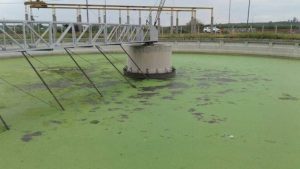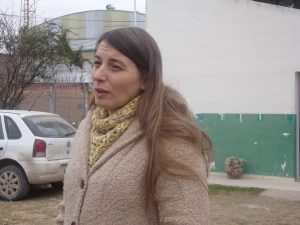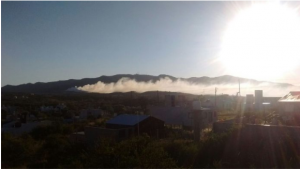Together with organizations with a history in the defense of human rights and the environment of Latin America and the Caribbean, we request a thematic hearing before the IACHR regarding the violation of human rights in the context of climate change in the region. In Cordoba, the cycles of floods and droughts are aggravated by the lack of planning and coordination of policies that take into account the effects of climate change.
“Below, we offer a google translate version of the original article in Spanish. This translation may not be accurate but serves as a general presentation of the article. For more accurate information, please switch to the Spanish version of the website. In addition, feel free to directly contact in English the person mentioned at the bottom of this article with regards to this topic”.
On March 5 different organizations from Latin America and the Caribbean, including FUNDEPS, sent a request to the Executive Secretary of the Inter-American Commission on Human Rights (IACHR), Dr. Paulo Abrão, to hold a thematic hearing, general and regional scope, on the impacts of climate change and its impact on the enjoyment of human rights in Latin America and the Caribbean.
The thematic hearings are spaces that are granted to civil society to deal with matters of interest in the region. The petitioners can make recommendations to the IACHR so that the latter may then develop them. Although the recommendations made by the IACHR are not binding, they are usually used and taken into account by judges and authorities when deciding a specific matter; for this reason they acquire so much relevance.
The hearing was petitioned jointly with various civil organizations from several countries in the region such as the Mexican Center for Environmental Law – CEMDA – (Mexico), the Honduran Alliance against Climate Change, Due Process of Law Foundation – DPLF – (Regional ), the Inter-American Association for the Defense of the Environment -AIDA- (Regional), EarthRights International (International), the Pachamama Foundation (Ecuador), the Center for Law, Justice and Society Studies – Dejusticia- (Colombia), lFiscalía del Medio Environment – FIMA – (Chile), Center for Legal and Social Studies – CELS – (Argentina), CONECTAS (Brazil), Engajamundo (Brazil) and the Legal Defense Institute – IDL – (Peru). They have a great track record for the work they do in the region, specifically in relation to the defense of human rights and the environment. Through this request, we seek to share and combat our concern about the negative effects that climate change is already inflicting on the present and its projection in the future.
The main purpose of the thematic hearing is to transmit to the IACHR, relevant and up-to-date information regarding the role played by climate change and the measures designed to combat it, in the enjoyment of the human rights recognized by the countries of Latin America and the Caribbean.
Implications of climate change in the region
The effects of climate change are deployed throughout the world, overwhelmingly breaking social and ecological systems, generating a detriment in the enjoyment of a range of internationally recognized human rights such as the rights to life, physical health and mental, to food, water and sanitation, to adequate housing, to self-determination, among others. Added to this, it provokes a deepening of the pre-existing socio-economic vulnerabilities and differences in historically disadvantaged countries and groups.
Specifically in the case of the Americas and the Caribbean, this becomes more evident when there are currently several million people living in the path of hurricanes and low-lying coastal areas, which makes them victims of sea level rise. , storm surges and coastal floods. Even more so considering that several countries have a large proportion of their urban population living in areas less than five meters above sea level. As temperatures continue to rise, so does the risk of vector-borne diseases, such as malaria and dengue, aggravated by poor water and housing conditions, thus affecting the right to health of the population.
In addition, the rural poor in general, and indigenous groups, in particular, are especially vulnerable to climate change due to their dependence on small-scale agriculture and natural resources. Additionally, climate change differentially impacts more women. Indeed, the analysis of population censuses of natural disasters in 141 countries showed that “although catastrophes cause suffering to everyone, on average, they produce more fatalities among women than men, or they take the lives of more young women than men. “
In the case of Argentina, and more precisely in Córdoba, the cycles of floods and droughts caused by climate change are aggravated by the lack of planning and coordination of policies to combat their effects. In 2015, this situation led to the floods produced in almost all the towns of the Sierras Chicas, causing all kinds of damage – structural housing, economic and health – many still unsolved and, what is even more serious, the loss of human lives.
Adaptation and mitigation measures are not enough
The States of the region have adopted numerous measures in order to reduce the adverse effects of climate change. These are the so-called “mitigation and adaptation” measures; the first, referring to the intervention of man in reducing the emission of greenhouse gases, and the second, those that seek to moderate or avoid damage or take advantage of beneficial opportunities. The problem that arises with such measures is that in many cases they also violate or negatively affect the enjoyment of certain human rights, such as those that limit access to and use of natural resources, such as land, water and water. forests.
Por este motivo es que, luego de la entrada en vigor del Acuerdo de París (2016), todas las medidas que los Estados adopten deben “respetar, proteger y considerar sus respectivas obligaciones en materia de derechos humanos” y, en particular, “el derecho a la salud, los derechos de los pueblos indígenas, las comunidades locales, los migrantes, los niños, las personas con discapacidad y las personas en situación de vulnerabilidad y el derecho al desarrollo, así como la igualdad de género, el empoderamiento de las mujeres y la equidad intergeneracional”.
With an eye on the Framework Convention on Climate Change
If the request for a thematic hearing is approved, it will be held during the 172nd period of sessions of the IACHR, between May 2 and May 10, 2019 in Kingston, Jamaica. In addition, the following Conference of the Parties to the UNFCCC will take place in Santiago, Chile at the end of 2019, making the thematic hearing a preamble as a multi-stakeholder dialogue addressing this issue from human rights and with a regional perspective . Contributing thus to an articulation of themes conducive to the same objective: sustainable development with a focus on rights.
This new global context, where climate change is an unprecedented challenge, requires the IACHR’s innovative agency to set the standards and standards necessary for the States of the continent to advance at an accelerated pace towards a future with a safe level of greenhouse gases, allowing climate stability and with fully guaranteed rights.
As global warming continues to rise, basic human rights are at risk, affecting not only the present generations, but especially the generations to come. For all these reasons, and bearing in mind that the IACHR is the body in charge of the promotion and protection of human rights in the region, we consider it fundamental that the request for a thematic hearing presented be considered.
More information
Solicitud de audiencia temática ante la CIDH
Author
Ananda Lavayen
Contact
María Pérez Alsina – mariaperezalsina@fundeps.org





